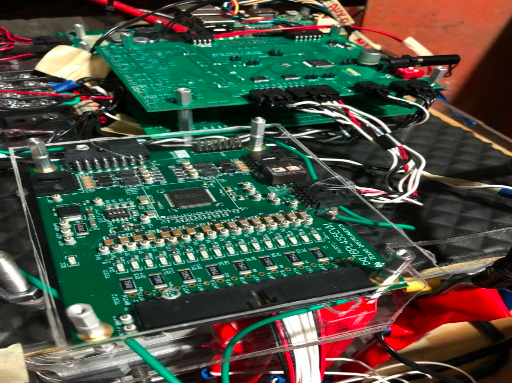A Step Forward
We believe that, through EV battery reuse, we can help build a more sustainable future. We just completed our first second-life battery (2LB) demonstration projects: a battery conversion on a utility vehicle. The project was done in conjunction with UC Irvine engineering undergraduates. Our job was to provide the batteries and design the custom battery management system (BMS) for the vehicle, while the group of students were tasked to add a solar panel with dynamic maximum power point tracking (MPPT). In this post, we’ll focus on the battery conversion. For more information on the solar aspect of the project, please contact us at info@rejouleenergy.com. The goal of this conversation project is to demonstrate the safety, reliability, and potential of used EV batteries, and to showcase ReJoule’s proprietary battery management system (BMS) in real world situations. We replaced the vehicle’s 5.9kWh lead-acid battery pack with a 4kWh battery pack that consists of 10 Nissan Leaf battery modules in a 5S2P configuration.
Before: Lead acid batteries in the utility vehicle
After: Charger & 5S2P Nissan Leaf battery pack with ReJoule’s BMS
Closeup of ReJoule’s BMS prototype and control circuits
We expect similar vehicle range even with significantly less battery capacity. That’s because our lithium battery pack is less than ⅓ the weight of the lead acid battery pack! The reduced weight improves the vehicle’s miles/kWh efficiency. Future drive cycle tests will help quantify the added value of the battery conversion.
Lithium batteries must be tightly controlled to ensure safety, reliability, and lifetime. Our BMS monitors cell voltages, current, and temperature on a continuous basis, and protects the battery cells from over/undervoltage conditions, and dangerous events such as thermal runaway. The BMS also balances the cells to keep them within a narrow operating window. This increases the vehicle’s range, and improves lifetime of the battery pack. The BMS also generates important usage and operational data so we can monitor performance remotely.
We’ll continue to work with the university to gather insights on this initial prototype. Our next step is to leverage the flexible system we’ve created for this battery into a solar plus energy storage system. We are open to do collaborations related to second-life applications for storage or mobility. Please feel free to contact us at info@rejouleenergy.com!
Cheers,
The ReJouligans



